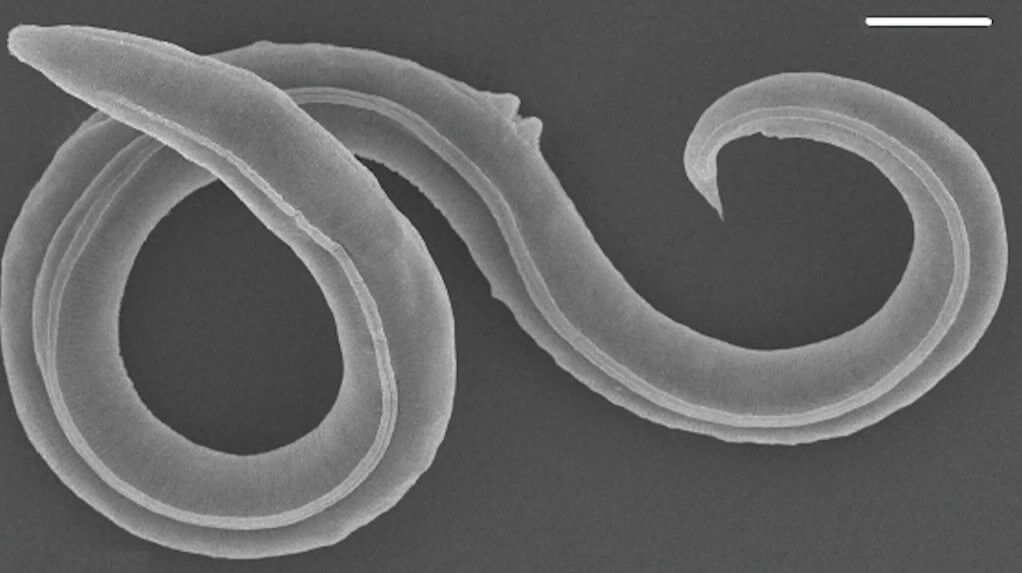Can anything be revived after 46,000 years? This is the incredible story of how scientists indeed brought back to life a pair of worms that first lived during the time of wooly mammoths – and how they could one day help other animals cope with climate change.
This discovery was recently published in the peer-reviewed journal PLSO Genetics and shows how worms, known as nematodes, are capable of surviving extreme conditions of up to minus 80 degrees celsius for many many millennia.
Just how significant this discovery is? The researchers point out some previously held records and they do not come close to 46 millenia:
“Spectacular examples of long-term cryptobiosis include a Bacillus spore that was preserved in the abdomen of bees buried in amber for 25 to 40 million years, and a 1000 to 1500 years-old Lotus seed, found in an ancient lake, that was subsequently able to germinate. Metazoans such as tardigrades, rotifers, and nematodes are also known for remaining in cryptobiosis for prolonged periods. The longest records of cryptobiosis in nematodes are reported for the Antarctic species Plectus murrayi (25.5 years in moss frozen at -20°C), and Tylenchus polyhypnus (39 years desiccated in an herbarium specimen).”
Also read: This Ancient Stone Carving Is Just 1.5 Inches Wide, Shocks Scientists With The Amount of Detail
The worms were discovered back in 2018 by Anastasia Shatilovich, a scientist from the Institute of Physicochemical and Biological Problems in Soil Science RAS in Russia. The researcher found the worms buried 130 in permafrost. In the photo above you can see a scanning electron picture of a female Panagrolaimus kolymaensis nematode roundworm – the very worm that was revived.
Amazingly, they revived these nematodes simply by putting them in water, which restarted their biological processes.
The nematodes usually only live for a few days and, after being revived, the same thing happened, but not before reproducing several generations inside the researchers’ lab.
After reviving the two worms, Anastasia Shatilovich put about 100 worms in her pocket and transported them to research labs in Germany to find out which species they are.
“One can halt life and then start it from the beginning. This is a major finding,” said Teymuras Kurzchalia, professor emeritus at the Max Planck Institute of Molecular Cell Biology and Genetics in Dresden and one of the scientists involved in the research.
How can nematodes survive after millenia and simply come back to life?
The nematodes’ survival is due to a process called “cryptobiosis”, a dormant state that allows them to slow down their metabolic rates to an undetectable level and survive even the harshest conditions: from freezing to high temperatures, to environments with no water or oxygen to extremely salty environments.
The worms discovered in the Siberian permafrost were a previously unknown species but researchers discovered that they have something in common with C.elegans, a nematode that’s commonly used in research. That something is the “molecular toolkit” that enables these extraordinary creatures to survive cryptobiosis.
The newly-discovered Panagrolaimus kolymaenis, the worm revived by the Russian scientist, produces the same sugar called trehalose as the C.elegans, and this sugar could be responsible for their incredible resistance. Researchers are hopeful that one day they can use this discovery to protect more animals against adverse conditions like the ones brought on by climate change.
“By looking at and analyzing these animals, we can maybe inform conservation biology, or maybe even develop efforts to protect other species, or at least learn what to do to protect them in these extreme conditions that we have now,” Philipp Schiffer, research group leader of the Institute of Zoology at the University of Cologne and another of the scientists involved in the research, told CNN.
Follow TechTheLead on Google News to get the news first.





















